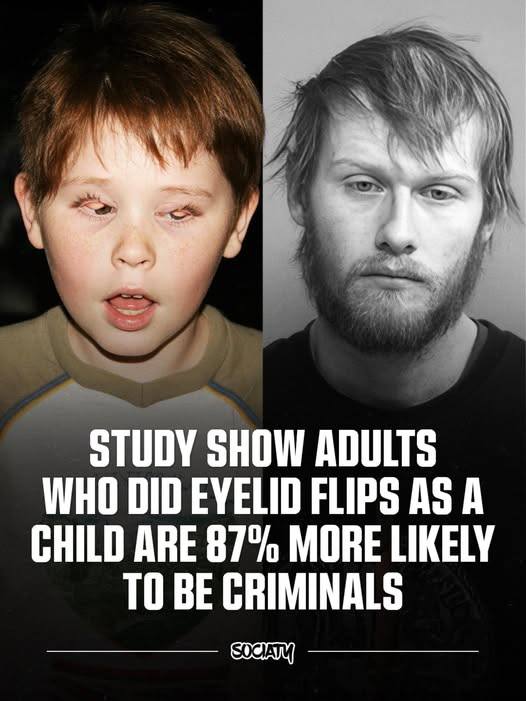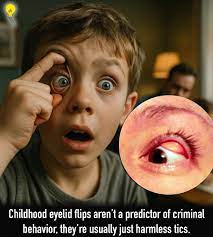NO, FLIPPING YOUR EYELIDS AS A KID DOESN’T MAKE YOU A CRIMINAL: EXPERTS DISPEL VIRAL CLAIM

NO, FLIPPING YOUR EYELIDS AS A KID DOESN’T MAKE YOU A CRIMINAL: EXPERTS DISPEL VIRAL CLAIM
A bizarre claim circulating on social media has suggested that children who flipped their eyelids inside out are “87% more likely to become criminals as adults.” The post spread quickly, sparking concern among parents and prompting a wave of online debate. But medical experts and psychologists say the notion has no scientific basis — and significantly misrepresents childhood behavior.
According to specialists, eyelid flipping is a harmless childhood habit that many children experiment with out of curiosity, imitation, or the desire to get a reaction. It is no more predictive of criminal behavior than making silly faces or pulling pranks in grade school. Pediatricians note that the act is generally safe, though it may irritate the eyes temporarily.
Some children who display repetitive facial movements — including eyelid flipping — may be experiencing simple tics or transient habits that fade with time. In a smaller number of cases, these behaviors can be associated with neurological conditions like Tourette Syndrome. However, none of these patterns correlate with an increased risk of criminal activity.
Researchers stress that criminal behavior is shaped by a complex mix of environmental, social, and psychological factors. Childhood experiments with silly or unusual behaviors simply do not predict a child’s future morality or decision-making.
Experts warn that viral misinformation like this can cause unnecessary fear, fuel stigma, and distract from genuine issues affecting child development. They encourage parents to focus on open communication, emotional support, and healthy environments rather than myths circulating online.
Ultimately, the claim linking eyelid flipping to future criminality falls firmly into the category of internet folklore. Childhood quirks are exactly that — quirks — and not indicators of a child’s destiny.
The real takeaway, professionals say, is simple: kids being kids is not a crime, and parents shouldn’t let viral myths convince them otherwise.











